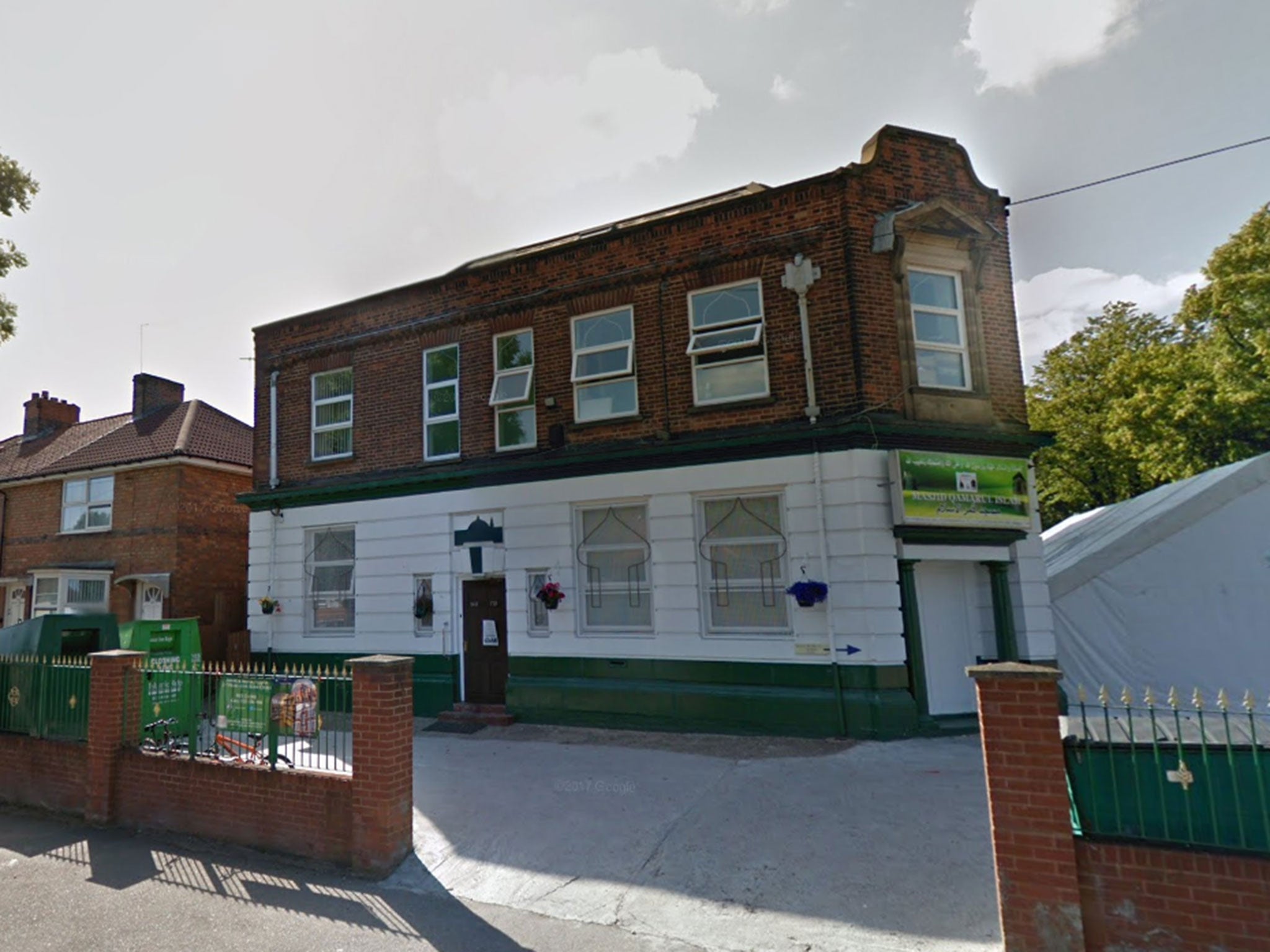Armed police called after catapult attacks on two Birmingham mosques during evening prayers
Local Muslim leaders previously raised fears of a surge in Islamophobic attacks following Westminster incident

Armed police have been called to two mosques in Birmingham after windows were smashed during evening prayers.
There were initial fears someone could have shot at the Masjid Qamarul Islam mosque and Al-Hijrah mosque, which were targeted minutes apart in Small Heath.
“Worshippers thought they were under attack by someone with a gun,” Imam Usman Hussain, of the Masjid Qamarul Islaml, told the BBC.
“We heard a loud bang, people were very frightened, there was a sense of panic, but we don't know what the motive was.”
Police said windows were smashed on Wednesday evening, amid counterterror investigations into the alleged Westminster attacker Salih Khater elsewhere in Birmingham.
West Midlands Police said the first attack came at 10pm and the second 20 minutes later.
“The first [attack] broke a window in the on Fosbrooke Road around 10pm, followed by another broken window at the Al-Hijrah mosque on Hob Moor Road,” a spokesperson said.
“Firearms officers were deployed as a precaution, but the bearings recovered are thought to be from a heavy-duty catapult.
“The reason for the attacks aren't clear at this stage, but officers are continuing to patrol the area to reassure worshippers and local residents.”
No one has been arrested in connection with the attacks and police continue to investigate.
They came hours after leaders of Birmingham Central Mosque, which was not targeted, said they feared further Islamophobic incidents in the wake of the Westminster incident.
Mr Khater, a 29-year-old British citizen originally from Sudan, has been arrested on suspicion of attempted murder and committing an act of terrorism and police have searched his current and previous homes in Birmingham.
“Some community members are upset, in this time of heightened Islamophobia against our community and with the focus by the far right on Muslims as the bogeyman in society,” said Nassar Mahmood, a trustee at Birmingham Central Mosque.
“Generally, who tends to suffer is our women, because they’re more visible [as Muslims], and in this way the recent comments by Boris Johnson haven’t helped either.
“We’re used to people from the EDL, BNP, the far right using us as scapegoats, but when people in the government say this it’s particularly harrowing for the community. It’s affecting people who are the most vulnerable in society.”
Islamophobia reporting group Tell Mama called the mosque attacks “extremely worrying” after it revealed an uptick in recent incidents.
Several Muslim women have reported being called “letterboxes” since Mr Johnson’s column used the same insult earlier this month, and on Saturday a Muslim family were called “f***ing terrorists following an accidental car crash in the West Midlands.
Tell Mama recorded a 30 per cent rise in Islamophobic street incidents and a 16 per cent rise in 2017, taking the number of verified reports to a record of 1,201.
Its annual report warned of a “marked shift” towards more serious offline incidents like physical attacks, vandalism and abuse, as hatred continues to spread on social media.
Researchers said perpetrators felt “emboldened” by terror attacks and political discourse, adding: “Events which stimulate public discourse on immigration and Islam can correspond with a demonstrable ‘spike’ in anti-Muslim hate crimes and incidents.
“It is vital to note that these events are not the underlying cause of anti-Muslim incidents, but rather act as triggers, where people with latent racial prejudices feel emboldened to act on their views, violently or otherwise.”
